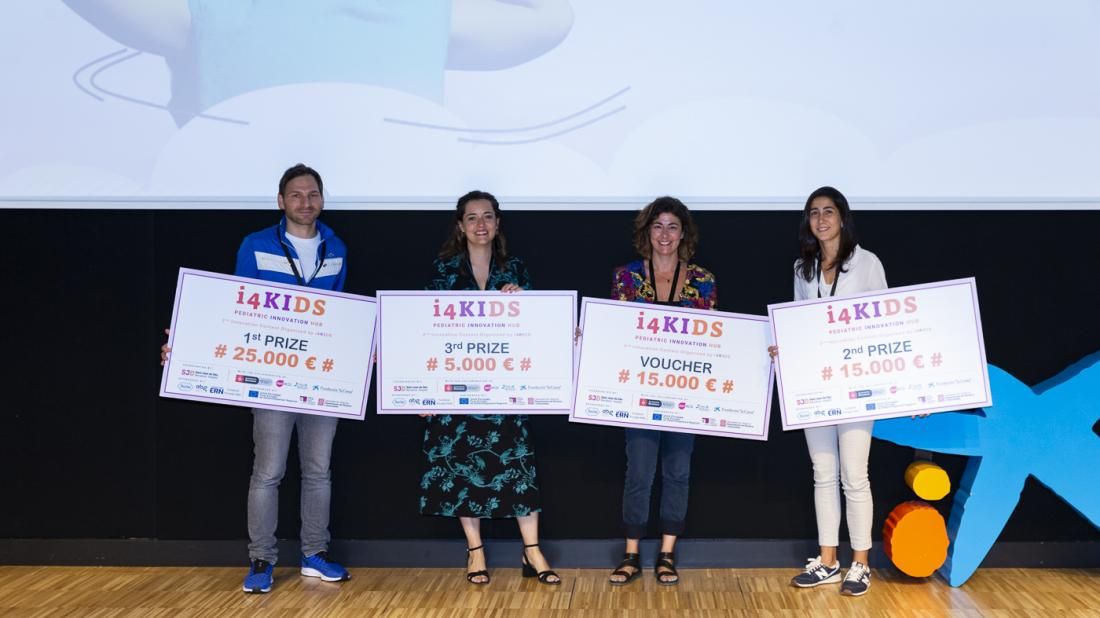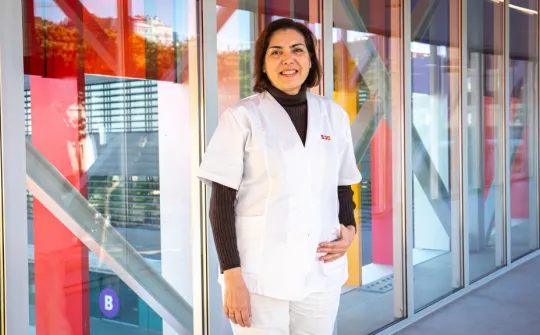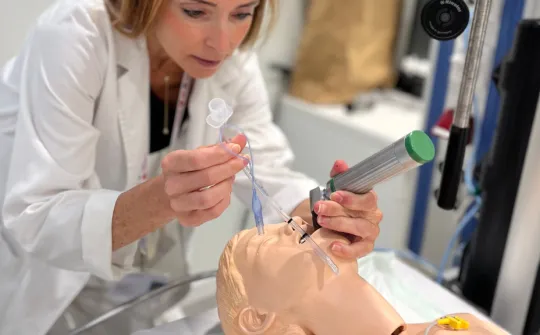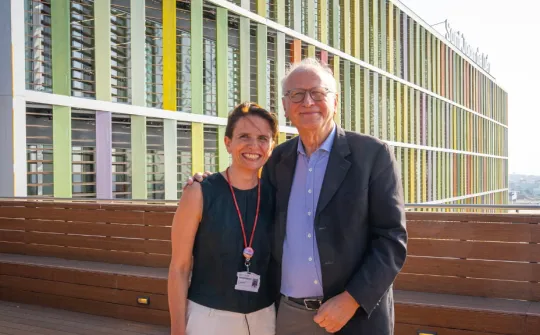An electric walker for children with cerebral palsy is just one of the award-winning projects at the Pediatric Innovation Day

The Pediatric Innovation Day is a scientific meeting organised by the Pediatric Innovation Hub i4KIDS and coordinated by SJD Barcelona Children's Hospital.
An electric walker that allows children with cerebral palsy to stand and walk independently and a test that can predict whether a child's fever is a sign of a trivial or serious and life-threatening infection are two of the innovative projects to be recognised at the second edition of the Pediatric Innovation Day, a meeting promoted by the i4KIDS Hub that was held at the Cosmocaixa Science Museum.
This year, the Pediatric Innovation Day created two award categories: the i4KIDS Start, which is awarded to an innovative project in an early phase of development (with 15,000 euros and access to the Barcelona Activa pre-acceleration programme), and the i4KIDS Contest, awarded to three projects already under development with the aim of accelerating their release onto the market (with 25,000 euros for first prize, 15,000 euros for second prize and 5,000 euros for third prize). A jury made up of representatives from industry and investment, entrepreneurs and patient associations chose the winning projects from the six finalists. Nearly 70 projects were put forward for the Pediatric Innovation Day awards. The winning projects are:
A test to predict whether a child's fever indicates a trivial or serious infection – i4kids Start Award
The i4KIDS Start Award, consisting of 15,000 euros and access to the Barcelona Activa pre-acceleration programme, went to a tool being developed by ISGLOBAL to predict, in just ten minutes, whether a child's fever is a sign of a serious and life-threatening infection. Currently, when a child develops a fever, healthcare professionals assess the symptoms and try to identify the pathogen causing the fever in order to prescribe the most suitable treatment. The new system seeks to detect biomarkers that allow professionals to predict the clinical course, so they can decide whether the infection will be trivial and they can send the child home, or whether it could become more serious and require hospitalisation. This tool could be especially useful in developing countries where professionals have few diagnostic tools.
An electric walker for children with cerebral palsy, i4kids Contest first prize
"Roo-walk" is an electric walker that enhances the mobility of children with cerebral palsy. It allows them to stand and walk independently while keeping their hands free, without their parents' help. This walker has the advantage of adapting to the growth of the child and being lightweight and easy to use. Cerebral palsy is a disability caused by an injury to the brain that affects the person's mobility and posture, limiting their activity. Being able to walk allows children with cerebral palsy to improve their coordination and balance, strengthen their bones and muscles and explore their environment, while promoting cognitive skills and, ultimately, improving their quality of life.
A postural control system for premature babies, i4KIDS Contest second prize
"Nido" (Nest) is a containment and sensory stimulation system for premature newborns. It is a product composed of different modules that help address the specific needs of premature babies when they move from their mother's uterus to an incubator. Thanks to its shape and materials, it adapts perfectly to the baby, guaranteeing correct development and making it possible to apply the current postural control and containment methodologies while minimising risks and improving the work times of the care team. This device is designed to complement the kangaroo method – which consists of placing the premature baby on the mother's chest as long as possible to strengthen the maternal bond – because it simulates the maternal environment as much as possible.
A platform that helps children with cancer to better control their pain through play, i4kids Contest third prize
This project, developed by the company "Nen Health", aims to treat the emotional and mental aspects of pain, rather than focusing on physical pain, to reduce the psychological impact and decrease pain levels. It is an interactive platform that introduces cognitive behavioural therapy through play, giving fun encouragement to the child to follow their treatment. As it is digital, this therapy can reach many more children who could benefit from this type of support than is currently possible.
i4KIDS is a pediatric innovation network coordinated by SJD Barcelona Children's Hospital. It aims to identify and support innovative projects in the field of paediatrics and maternity that stand out for their ability to generate change in society and in the care of children. It has 28 members that encompass more than 75 research groups, 32 commercial companies, patient organisations, private investors and public administrations.
The project is co-funded by the European Union through the European Regional Development Fund (ERDF). The Pediatric Innovation Day is only possible thanks to the support of Roche, ABG Intelectual Property, Laboratorios ERN, Fundación Mar, Ship 2B Ventures, Barcelona Activa and DWF RCD Law Firm.



